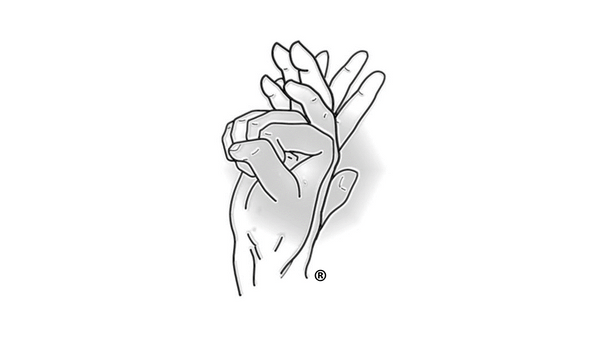In my previous post, I expressed a desire to contribute to colleagues’ wellbeing. The incentive came from my research of seemingly insignificant experiences rarely being considered, or even acknowledged when an observer constructs their account of a lesson. Having an acute sense of the need, I set out to create an online reflective tool that might be both efficient and effective – crucial for hard-pressed staff bombarded with incessant demands and initiatives.
Thus, I converted aspects of my previous research (validated through PhD) into a coherent reflective tool for busy teachers so that they had a mechanism to register what was going on for them – a platform for their unique and valuable perspective: Chalkface Check-Up – an exercise in self-care.

My original literature review offered terms such as tension, strain, struggle, anxiety, burnout and stress. Researching key resources to more fully understand the field today, it seems not much has changed! Yet the Education Support Wellbeing Index (2021:88) reports only 34% of education staff are regularly surveyed.
Finger on the pulse
Whilst acknowledging the generic advice advocating the importance of sleep, diet, exercise and mindfulness, I was more curious about tapping into the teacher’s specific lived experience of a lesson taught say, yesterday, or even that very morning. Here Chalkface could enquire to ‘what extent did you feel tired, hungry, energised, aware…?’

(educationsupport.org.uk)
How often I had observed colleagues in the past and made my assessment completely ignorant of the teacher’s physiological state.
Acknowledged in literature
I only had to draw on experience in the classroom to recall feeling unwell or tired tended to lead to me being impatient or snappy. As such Chalkface duly extended its coverage to the psychological realm. My doctorate had magnified the tendency for teachers to adopt a persona when in role, the notion of a ‘split-self’ to cope with systemic tension; self-laceration when pupil underperformance evokes self-blame; and sub-identities to describe the experience of incongruence between a teacher’s personal and professional selves.
Ok, I would have to simplify the terms but clearly, one’s perspective or lens had to be part of the equation if Chalkface was to produce innovative data.
Holistic coverage
If I followed my conviction that educationalists are first and foremost human, then I had to go deeper – body, mind, and soul, delving into the philosophical to ponder the contribution of beliefs and values to the teacher’s state or wellbeing. I know full well how my sense of dissonance came to the fore when I had to compromise my personal orientation with directives from my Department/School.
The scope provided essential contextual data, which may be an unrepresentative snapshot or conversely, shines a light on the teacher’s erosive patterns of behaviour that had come to be accepted as the norm. I wondered whether one’s sense of wellbeing and mental health resided somewhere in the intersections of these comprehensive facets, in what I would call 'holistic dimensions'.
Fascinating liminal phase
This foundation provided the backdrop for questions that got to the core of my interest. The Edusense FITS wellbeing reflective tool would provide an easily accessible platform for teachers to articulate the extent they were aware of, or alert to transitions – that is when pressure turns to stress; when responding tips over into reacting; when coping gives way to defensive mechanisms.
These transitions represent rich, fertile ground for reflection and/or stimuli for professional dialogue. And of equal importance, is the notion of rebalancing – regaining a sense of equilibrium as we go about the job challenging our learners and striving for excellence.

Functionality
So, that represents some of Chalkface's coverage. On a pragmatic level, I needed to ensure that data collection was efficient. The tool is organised in digestible formats that people can access at their convenience (Objective 1 - Education Support Partnership: 2021: 7). Options for recording via text or audio were provided. Additionally, functionality enabling automatic transcription of audio into text was enabled. The tool also allows users to pause and pick up where they left off if, for example, the bell rings halfway through their reflection.
And when complete, the entire account would remain confidential and be available to the teacher via their secure account. The record would include audio links lest the accuracy of the transcription had been unduly tested by a strong regional accent – a potential frustration for mentors, coaches or trusted colleagues given access to select responses.
Creative use
This is an innovative new approach to supporting teacher wellness. I need to state that Chalkface has not been designed to be a deficit model. The tool is to be presented as an aid to conducting an enquiry. A teacher might choose to select a range of classes, or may restrict their focus to one specific group. Alternatively, a comparison between Monday mornings and Friday afternoons would be interesting.
And here’s an idea I liked. The opportunity to emphasise the positive by selecting a cooperative, thriving group for a month or so. This could provide not just a well-needed tonic, but also a safe place to analyse the intricacies of why things are going well. It has the potential to ensure well-being is part of daily operations.
We need to take care of teachers – let’s give attention to when they are at their best, whilst encouraging staff to recognise and support/signpost when their own, or a colleague’s mental health and wellbeing are under threat.
If part of a supportive culture, Chalkface provides leaders with a tool to assist them in promoting the wellbeing of those they line manage (#3: DfE Charter, 2021:6); for example, it can be utilised to gather the teacher's perspective following their observation or when they are the host of a 'Learning Walk'.
Boundaries
In our next post, I will share feedback from a senior colleague acting as a critical friend. It seems Chalkface’s application extends far beyond the classroom to create essential closure for staff who struggle to switch off from unresolved aspects from the day.

